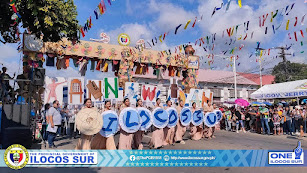jm
Tuesday, April 1, 2025
A moment to remember
The end of the beginning
Despite my accomplishments, this quarter also came with its fair share of challenges. Balancing multiple subjects, meeting deadlines, and preparing for final assessments were overwhelming at times. There were moments when I felt pressured and uncertain about my future path. However, I faced these challenges by staying focused, seeking guidance from my teachers and classmates, and managing my time wisely. I reminded myself that every challenge is an opportunity for growth, and with determination, I can overcome any obstacle.
My Dream, My Future
Fifteen years from now, I see myself as a successful engineer, making a significant impact in my field. I envision working on innovative projects that solve real-world problems, using my skills to design and build structures, systems, or technologies that improve lives. Through hard work, continuous learning, and dedication, I will establish myself as a competent and reliable professional, contributing to advancements in engineering. Beyond professional success, I also see myself growing as a leader in my industry. I hope to inspire future engineers, mentor young professionals, and advocate for sustainable and efficient solutions in my field. My goal is not just to achieve personal success but also to be part of a community that pushes the boundaries of innovation. I will strive to be a problem-solver, someone who takes on challenges with creativity and determination.
To reach this dream, I am committed to pursuing quality education, gaining hands-on experience, and continuously improving my knowledge. I understand that the path to success requires perseverance, resilience, and a willingness to learn from failures. With a clear vision, strong motivation, and dedication to my craft, I believe that my dream of becoming a successful engineer will become a reality.
References: Benefits Of Engineering-Driven Design And Construction - Neenan Archistruction
United for Equality
Thursday, February 20, 2025
One Sound, One Voice, One Ilocos Sur
The festival plays a crucial role in promoting Ilocano pride and unity, bringing together locals and visitors to experience a wide array of activities. It features traditional dances, music, indigenous games, trade fairs, and religious celebrations, allowing younger generations to connect with their cultural roots. The Kannawidan Trade and Agri-Fair showcases the best of Ilocos Sur’s products, such as abel Iloco woven fabrics, native delicacies, pottery, and woodcrafts, boosting local businesses and tourism. Furthermore, religious events honor the province’s strong Catholic faith, reinforcing the spiritual aspect of Ilocano traditions.
More than just a day: The True Essence of Valentine’s Day
Wednesday, February 12, 2025
Community-Based Research: A Journey to the rich history of Barangay Ayusan
This study aims to prevent that,
by commemorating what life was like in the past, by remembering what it once
was, we hope to awaken and teach the memory of it to those who will come next.
With this research, we hope to enlighten the future generation and put emphasis
on the importance of remembering our community’s historical origins.
A moment to remember
The 123rd High School Day celebration of Ilocos Sur National High School was truly unforgettable. The school was filled with exciteme...

-
Our Community-Based Research is focused on the History and the origin of a place. Barangay Ayusan Norte comes from a deep history. A ...
-
Vigan, known for its well-preserved Spanish-era architecture and rich cultural heritage, has undergone significant changes from being ...
-
The third quarter has been a period of growth and discovery, allowing me to gain valuable insights and skills. Building on the lesson...












.jfif)







